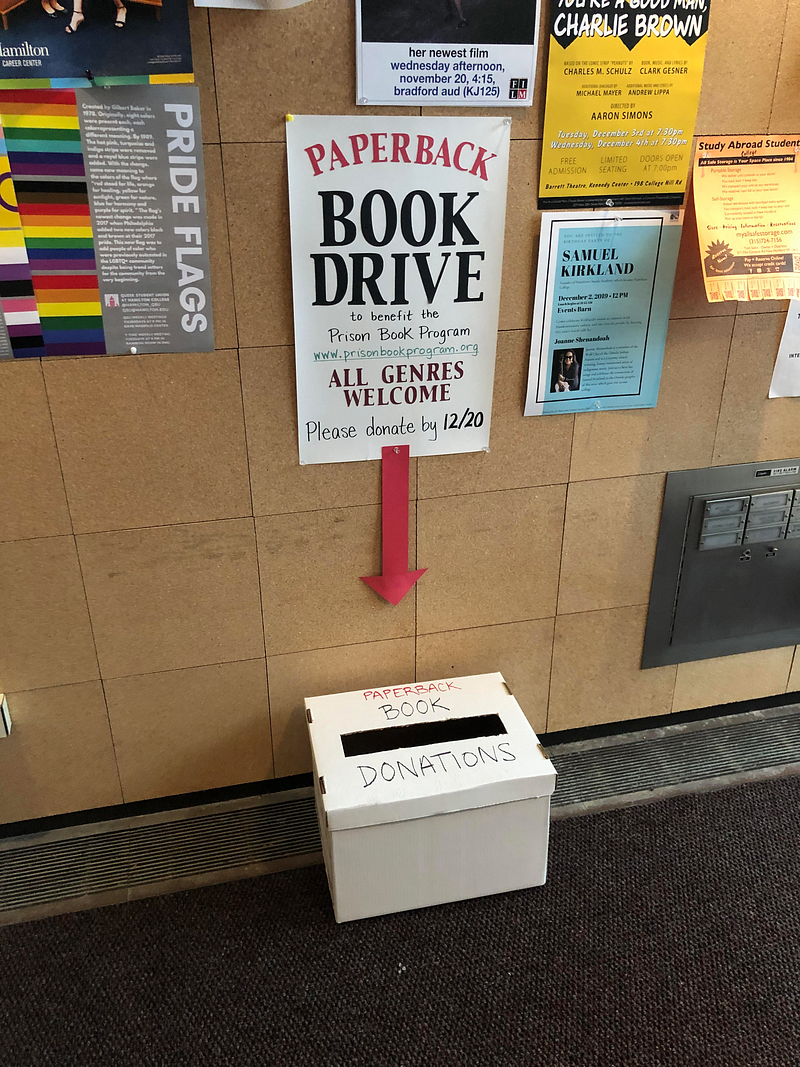
PHOTO COURTESY OF GENEVIEVE COHEN ’21
Genevieve Cohen ’21, a junior at Hamilton, has organized a paperback book drive for the Prison Book Program that is currently in progress until the end of the semester. After Cohen took a visit to the Mohawk Correctional Facility in Rome, NY with some of her classmates in Walcott-Bartlett Chair of Ethics and Christian Evidences and Professor of Literature and Creative Writing Doran Larson’s American Prison Writing Literature course, Cohen was inspired to help promote literacy.
She had the opportunity to converse with some of the inmates, one of whom expressed interest in reading Socrates. Cohen called the interaction “surprising” because she realized that “there must be a need for a wide variety of books in order to entertain such a diverse prison population.”
The class also requires that its students accomplish an out-of-class project that either promotes this subject or is a direct effort to assist the problem. After conducting research into the variety of organizations that work toward distributing reading material, Cohen settled upon the Prison Book Program because they distribute donations across 44 states and, should there be any difficulty in the acceptance of a book, it will be given to another organization.
According to Cohen, over 2.2 million people are currently in prison across the United States and their lack of access to academic and literary material can often be ignored. Hamilton students and faculty, on the other hand, have the luxury of being constantly surrounded by educational materials and opportunities.
Outside the Hill, there are three prisons in Oneida County and each is only about 20 minutes away from Hamilton, according to Professor Larson. Thus, prison salaries “contribute to the tax base that maintains the same roads, civil services, and infrastructure that the Hamilton Community relies upon every day. It seems to me that, as dependent as we are on prisons, we have an obligation to help — as [Cohen] is doing — to make them constructive institutions.”
He notes that it is important to donate because “incarcerated people can transform their lives through education and reading. Illiteracy and inadequate educational opportunities are major factors in the lives of most people who are locked up and who return to prison after release. Learning to read and write, and learning through reading are material elements of successful reentry into law-abiding lives. If you want safe neighborhoods, send books to prisons and support education inside.”
Cohen hopes that “this gap in education will be reduced and that these men and women will have better opportunities upon their release.” Students can find drop off locations in the KJ Atrium, Sadove, Burke Library, Bristol Center, the Science Center Atrium, and the lobby of Root Hall. Cohen expresses her gratitude towards those who donate and towards those who are interested in doing so.
